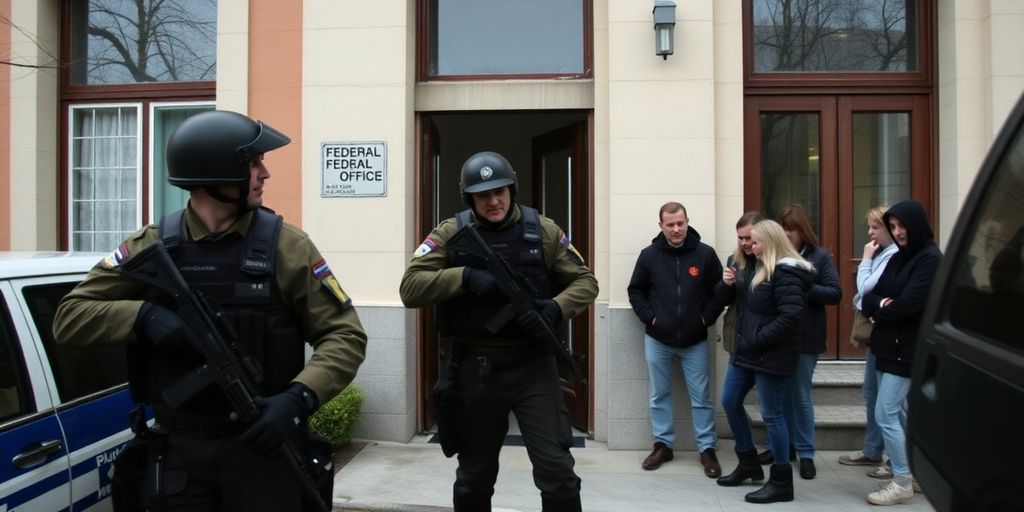Police in Republika Srpska, the predominantly Serbian region of Bosnia and Herzegovina, have forcibly removed federal police from a government building in Banja Luka. This incident marks a significant escalation in tensions as the region’s president, Milorad Dodik, pushes for greater autonomy and challenges federal authority.
Key Takeaways
- Republika Srpska police expelled federal officers from a building in Banja Luka.
- President Milorad Dodik has called for ethnic Serb members of federal institutions to resign.
- Dodik’s actions are seen as part of a broader separatist agenda.
- The European Union has condemned Dodik’s recent laws as undermining Bosnia’s constitutional order.
Background of the Incident
The raid on the federal office occurred amid rising tensions between the Republika Srpska government and the central authorities in Bosnia and Herzegovina. President Milorad Dodik has been vocal about his intentions to strengthen the autonomy of Republika Srpska, which has led to a series of confrontations with federal institutions.
Dodik’s recent call for ethnic Serb members of the federal police and judiciary to resign and join his government has raised alarms. He assured them that they would retain their legal status and potentially receive higher salaries, further enticing them to abandon their federal roles.
Dodik’s Separatist Agenda
Milorad Dodik has a history of advocating for the interests of the Serbian population in Bosnia and Herzegovina. His actions have included:
- Refusal to Comply with Federal Authority: Recently, Dodik defied a court summons, signaling his disregard for federal judicial processes.
- Legislative Actions: He has enacted laws that prohibit federal police and judiciary from operating within Republika Srpska, prompting legal challenges from Bosnian officials.
- Support for Separatism: Dodik has previously threatened to secede Republika Srpska from Bosnia and Herzegovina, claiming that the region has the capability to defend itself.
International Response
The European Union has reacted strongly to Dodik’s actions, filing a lawsuit against the new laws in the Constitutional Court. The EU argues that these laws threaten the constitutional and legal framework established by the Dayton Accords, which ended the Bosnian War in 1995.
The Dayton Accords created a complex political structure in Bosnia and Herzegovina, dividing the country into two entities: Republika Srpska and the Federation of Bosnia and Herzegovina. This arrangement was designed to maintain peace among the country’s diverse ethnic groups, including Bosniaks, Croats, and Serbs.
Conclusion
The recent raid by Bosnian Serb police on a federal office highlights the growing rift between Republika Srpska and the central government. As tensions escalate, the international community watches closely, concerned about the potential for further destabilization in the region. Dodik’s actions not only challenge the authority of the federal government but also raise questions about the future of Bosnia and Herzegovina’s fragile peace.






